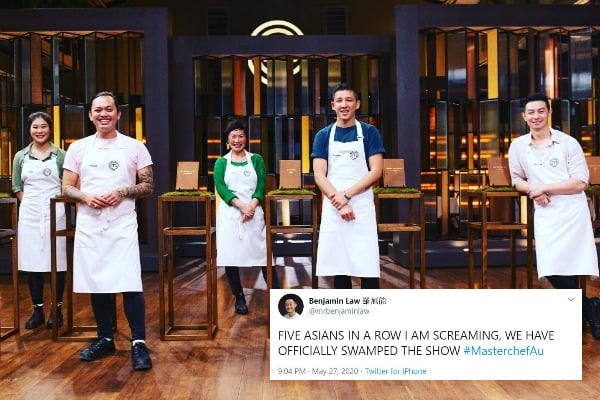
To catch up on all things MasterChef Australia 2020, make sure you check out our MasterChef hub. We’ve got you completely covered.
In the past two months, in living rooms across Australia, phones have been lighting up; streams of messages exchanged, groups chats created and hundreds of tweets composed.
As much of the nation settles in five nights a week to watch people make impossible things on MasterChef: Back to Win (because what else are you doing while we’re stuck at home during this global pandemic?), for the many Australians who have an Asian background watching from home, this new season of MasterChef has packed an emotional punch that none of us expected from a cooking competition.
Mamamia’s entertainment podcast The Spill discusses the emotional MasterChef episode where contestants share their stories. Post continues after.
There was a flurry of messages to friends and family when this season’s first Mystery Box challenge – set by Melissa Leong, the first female and Asian-Australian judge – prominently featured many Asian ingredients including the divisive chicken feet. We couldn’t believe we were seeing taro, galangal, let alone chicken feet (and ALL together) on prime time national TV.
While the other judges and many of the contestants balked at the sight of them, for every Asian-Australian in the kitchen (seven of them at the time, to be precise) and watching on from home, there were nods of excited familiarity. Even if you don’t like or eat chicken feet, they were a staple sight in your childhood, always on the table at family yum cha on Sundays.
Top Comments